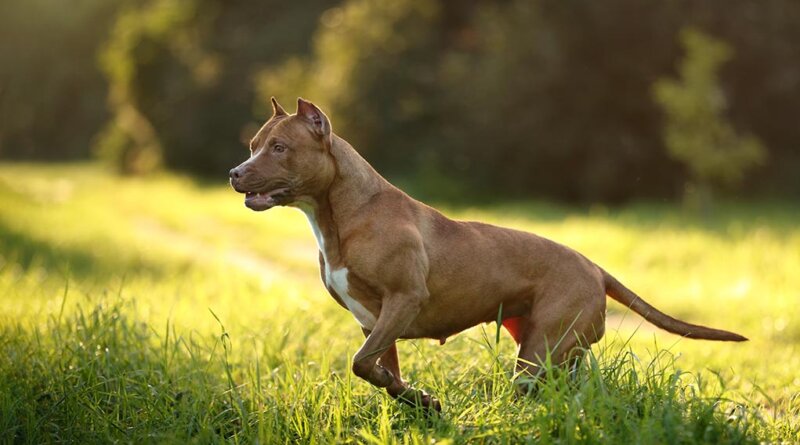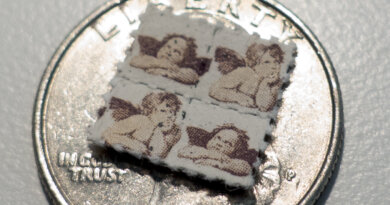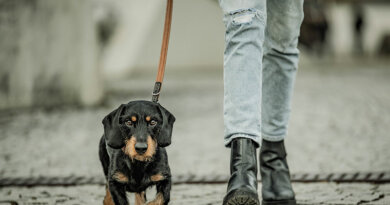American Pit Bull Terrier Dog Breed Profile – Top Dog Tips
The Pit Bull, also known as American Pit Bull Terrier, is a medium-sized terrier dog breed from the United States.
This dog breed has a controversial history and reputation. You might’ve heard that these dogs are dangerous and tend to be aggressive.
On the other hand, you might’ve also heard that the Pit Bull is an affectionate and loyal dog. So which one is it?
The American Pit Bull Terrier dog was initially bred to “bait” bulls before becoming an all-around farm dog.
These dogs can also get along great with children, earning them the nickname “nanny dog.”
If you want to adopt a Pit Bull puppy, it’s best to know first what you’re getting into.
This blog will discuss everything you need about the American Pit Bull Terrier dog breed.
Below, we’ll tackle the breed’s temperament, physical characteristics, exercise needs, and more.
First, let’s talk about the breed’s origin and history.
American Pit Bull Terrier History
The history of the American Pit Bull Terrier is somewhat tragic and confusing.
The American pit bull terrier is a breed recognized by the United Kennel Club in 1898 but not the American Kennel Club.
In the 1930s, the AKC wanted to rebrand the dog breed to separate it from its pit-fighting past. Hence, the AKC named it the American Staffordshire Terrier.
The American Staffordshire Terrier was bred for AKC conformation and dog shows.
There are just a few slight differences in build and personality between them and the American Pit Bull Terrier.
Originally bred in England, these dogs were first used as fighting dogs in the UK in the 19th century.
Bull and terrier breeds were bred for the spectator sport of bull and bear baiting.
When they finally migrated to America, they began a new career as all-around farm dogs.
Their job shifted from bull baiting to hunting wild game and guarding property against predators, and they also became companion animals.
American Pit Bull Terrier Physical Traits
American Pit Bull Terriers are medium-sized dogs with a muscular and athletic build. They typically weigh between 30 to 85.
Male American Pit Bull Terriers stand at 18 to 19 inches, while females stand an average of 17 to 18 inches.
They have a short, smooth coats in various colors, including black, brown, brindle, and white. Many pet owners choose to crop their ears, but they can also be left natural.
The head of an American Pit Bull Terrier is broad and flat, with a short muzzle and a powerful jaw.
On the other hand, they have round, dark eyes and strong necks leading to their muscular body.
Their legs, however, are straight and strong. These dogs have large, webbed paws that allow them to move quickly and efficiently.
American Pit Bull Terrier Temperament
Even with their bad reputations, most pit bulls are fun-loving companions. They are the opposite of what others think of them.
Most American Pit Bull Terriers are gentle and patient with family members. These dogs are filled with energy, and they are very smart dogs.
However, some Pit Bulls tend to be stubborn and tenacious since they were bred to be courageous and active.
That’s why just like any other dog, early socialization is important.
Living with an American Pit Bull Terrier
A well-trained and well-socialized Pit Bull is often good with children and pets.
But as pet owners, we must supervise all interactions between the children and the dog, no matter the breed, to prevent harm from both parties.
Moreover, these dogs are also often described as “velcro dogs” since they tend to develop a strong bond with their owners. They sometimes never want to leave their owner’s side.
Unfortunately, this can cause separation anxiety. Since they are focused on their favorite people, being alone will be hard for them.
This breed is not suited for people always outside or at work.
Training
Generally, Pit Bulls have an eager-to-please attitude.
They respond well to positive reinforcement or reward-based training methods such as treats, praise, and playtime.
Training an American Pit Bull Terrier is crucial to ensure they are well-behaved and obedient dogs. We can’t let the stereotype win, right?
Like any other dog breed, American Pit Bull Terriers must be socialized with people and other dogs from a young age to prevent aggressive behavior.
Exposure to different environments, people, and animals can help them become well-rounded dogs.
Also, remember that consistency is key when training an American Pit Bull Terrier. Don’t stop when they’ve learned the basics.
Even the most basic trick should still be refreshed in their minds every once in a while.
Establish consistent rules and boundaries, and enforce them consistently.
Obedience training is essential for American Pit Bull Terriers, as it teaches them basic commands like “sit,” “stay,” “come,” and “heel.”
This training can help prevent problem behaviors and increase their overall obedience.
Exercise
American Pit Bull Terriers are energetic dogs that require daily exercise to stay healthy and happy.
They are athletic dogs that enjoy high-intensity activities such as running, jumping, and playing fetch.
Pit Bulls require at least 30 minutes to an hour of exercise daily to maintain good physical and mental health.
Pit Bulls love to play, especially with their owners, and interactive playtime is an excellent way to provide them with exercise and mental stimulation.
Play games like tug-of-war, fetch, or hide-and-seek to keep your Pit Bull active and engaged. This can also help strengthen your bond with your pup.
American Pit Bull Terrier Health Care
Generally, the American Pit Bull Terrier is a healthy dog breed. Their life expectancy is about 8 to 15 years!
Sadly, the Pit Bull can be prone to illnesses like any other breed.
Owners should schedule regular visits to the veterinarian to keep their health in check.
Hip Dysplasia
Hip dysplasia is a genetic condition wherein the socket of the joint and ball becomes distorted.
Due to their large stature, their mass stresses their lower body areas, especially in their joints.
When diagnosed with hip dysplasia, it’s essential to keep their weight in the normal range and have them exercise with activities that promote joint therapy.
Veterinarians may prescribe medications for anti-inflammatory, pain relievers, and supplements.
Cataracts
A cataract is an obstruction of lens fiber in the lens of an eye. The gradual clouding of the lens in the eyes.
Although this is more common in elderly dogs, it can also be acquired through genetics, traumatic eye injuries, nutritional deficiencies, or diabetes.
Have your pet undergo an ophthalmic examination to detect small cataracts as early as four to five.
To determine whether it is blinding, it is better to check with your veterinarian to be informed what procedure should be done.
Allergies
Although it’s uncommon for American Pit Bull Terriers, some have allergies.
Owners should also ask their veterinarian what causes the allergy and what foods or activities to avoid.
Since American Pit Bull Terriers have longer coats, owners may have difficulty determining if their pet has an allergy.
Hypothyroidism
Hypothyroidism is the inactive function of the thyroid gland. Metabolism is slowed down if diagnosed.
The immune system attacks the thyroid gland as it does not recognize it. Usually, this is an inherited disorder.
If the American Pit Bull Terrier is experiencing lethargy, slow heart rate, weight gain, excessive shedding, and high cholesterol, it’s best to have them tested by the veterinarian.
If the dog is diagnosed with hypothyroidism, the veterinarian may provide maintenance and recommended diet.
It’s best to have this condition checked and addressed immediately.
Heart Issues
One of the most common heart problems in dogs is Aortic Stenosis, a hereditary heart problem.
It’s an abnormal narrowing of the connection between the left ventricle and the aorta. Be aware because some dogs will only show minor signs.
Schedule your pup for a checkup regularly. A chest x-ray and an electrocardiogram can help confirm the diagnosis.
Grooming
American Pit Bull Terriers have short, smooth coats that are easy to maintain. It only requires minimal brushing.
Remember to brush your Pit Bull’s coat weekly with a soft-bristled brush or grooming glove to help remove loose fur and maintain its beautiful coat.
Pit Bulls only need to be bathed when visibly dirty or have a strong odor. If your Pit Bull loves to play in the mud, bathe them afterward.
Keep their nails short by trimming them regularly. When trimming their nails, a good rule is never to let them touch the ground.
Pit Bulls are prone to dental issues, so regular dental care is crucial. Regular teeth cleaning is important to prevent dental problems.
Daily brushing is recommended to avoid tartar buildup and remove bacteria lurking inside their mouths.
Pit Bull owners must also take care of their dog’s ears. These dogs have floppy ears that trap dirt and debris, leading to ear infections.
That’s why it is important to check your dog’s ears regularly and clean them with a damp cloth or a dog-specific ear-cleaning solution.
As we’ve discussed above, Pit Bulls are prone to allergies.
One example is skin allergy and irritations, so monitoring their skin for signs of redness, rashes, or itching is important.
If you notice any issues, consult with your veterinarian for appropriate treatment.
Frequently Asked Questions About Pit Bulls
Is American Pit Bull Terrier a good family dog?
Yes, the American Pit Bull Terrier can be a great family dog with proper training and socialization.
These dogs make excellent companions despite having a bad reputation for aggression.
Are American Pit Bull Terriers loyal?
Yes, Pit Bulls are loyal dogs, especially to their favorite person.
As discussed earlier, American Pit Bull Terriers are also known as “velcro dogs” as they tend to develop a strong bond with their owners.
These dogs will want to spend every minute of every day with their favorite person.
Are American Pit Bull Terriers good guard dogs?
American Pit Bull Terriers can be good guard dogs because of their protective nature and loyalty to their owners.
However, as pet owners, we must train and socialize them at a young age to be friendly and non-aggressive.
American Pit Bull Terriers Dog Breed Profile: Summary
The American Pit Bull Terriers dog breed has a bad reputation for being aggressive. But on the contrary, these dogs are loving and loyal.
They are confident and aware of their environment, making them good watchdogs. These courageous dogs will do anything to protect their beloved families.
Like any other dog, the American Pit Bull Terrier will benefit from early socialization and proper training.
Expose them to different sights, sounds, environments, and experiences when they’re young to help them make well-rounded dog.
RELATED: BELGIAN TERVUREN DOG BREED PROFILE








